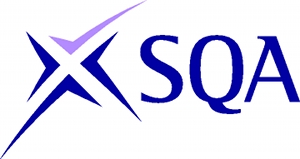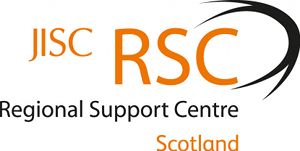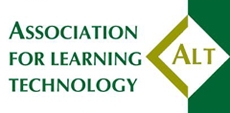summit focused on open education policy for Scotland which will take place at the National Museum of Scotland at the end of June. The event, which will bring together senior managers, policy makers and key thinkers, will provide an opportunity for critical reflection on the national and global impact of open education. Open Scotland will also provide a forum for identifying shared strategic priorities and scoping further collaborative activities to work towards more integrated policies and practice and encourage greater openness in Scottish education.
The Open Scotland keynote will be presented by Cable Green, Creative Commons’ Director of Global Learning. Creative Commons are a non-profit organization whose free legal tools provide a global standard for enabling the open sharing of knowledge and creativity. Representatives of the Scottish Government, the National Library of Scotland, SQA, ALT Scotland, the University of Edinburgh, Glasgow Caledonian University, the Nordic OER Alliance, the EU Policies for OER Uptake Project, Kerson Associates, Jisc, Jorum, Jisc RSC Scotland and OSS Watch will be among those attending. A synthesis and report of the outputs of the summit will be disseminated publicly under open licence.
Open Scotland Overview
“A smarter Scotland is critical to delivering the Government’s Purpose of achieving sustainable economic growth. By making Scotland smarter, we will lay the foundations for the future wellbeing and achievement of our children and young people, increase skill levels across the population and better channel the outputs of our universities and colleges into sustainable wealth creation, especially participation, productivity and economic growth.”
http://www.scotland.gov.uk/About/Performance/scotPerforms/objectives/smarter
How can Scotland leverage the power of “open” to develop the nation’s unique education offering? Can openness promote strategic advantage while at the same time supporting social inclusion, inter-institutional collaboration and sharing, and create new opportunities for the next generation of teachers and learners? The Scottish Government’s ‘Scotland’s Digital Future’ strategy, published in 2011, sets out the steps that are required to ensure Scotland is well placed to take full advantage of all the economic, social and environmental opportunities offered by the digital age. However, whilst the Scottish Government has been active in advocating the adoption of open data policies and licences it has yet to articulate policies for open education and open educational resources. In March 2013, the Scottish Funding Council published a ‘Further and Higher Education ICT Strategy’ that builds on the Scottish further and higher education sectors’ culture of collaboration and the range of national shared services that are already in place, many of which are supported by Jisc, JANET UK and others. What kinds of open policies and practices can we develop and share across all sectors of Scottish education to help implement these strategies and move them forward?
Scotland has a proud and distinctive tradition of education, which is recognised internationally. The Curriculum for Excellence is transforming schools to better equip our children for the challenges of the 21st century. With our colleges and universities experiencing major changes in terms of structure, funding and access, Scotland’s colleges are opening up their educational content to the world through the new Re:Source OER repository. The University of Edinburgh have pioneered the delivery of MOOCs in Scotland, recently attracting over 300,000 students to six online courses, and Napier University is embracing open practice through their open 3E Framework for teaching with technology, which has been adopted by over 20 institutions globally. The Jisc RSC Scotland are making extensive use of the Mozilla Open Badge Infrastructure (OBI), which enables an open, standards-based way to issue digital recognition and accreditation. The Scottish Qualifications Authority is exploring how open badges can be built into the national qualifications system and the ICT Excellence Group, which is overseeing the re-development of the Scottish schools’ intranet GLOW, are also investigating their potential use
Elsewhere, the HEFCE funded UKOER Programme has been instrumental in stimulating the release of open educational resources and embedding open practice in English HE institutions. SURFNet in the Netherlands recently published their second ‘Trends Report on OER’, and a group of Nordic countries have launched the Nordic Alliance for OER. The UNESCO 2012 Paris Declaration called on governments to openly license publicly funded educational materials, and later that year the European Union issued a public consultation on “Opening up Education – a proposal for a European initiative” in advance of a new EU Initiative on “Opening up Education” expected to launch in mid-2013. Underpinning many of these developments is an increased acceptance and adoption of Creative Commons licences.
We are experiencing a period of unprecedented flux in all sectors of teaching and learning. For better or for worse, the advent of MOOCs has opened a public debate on the future direction of post-school education, though the balance of commercial opportunities and threats from the increased marketisation and commodification of education is still unclear.
Open Scotland is a one day summit facilitated by Jisc CETIS in collaboration with SQA, Jisc RSC Scotland and the ALT Scotland SIG. The event will provide an opportunity for key stakeholders to critically reflect on the national and global impact and opportunities of open education, provide a forum to identify shared strategic interests and work towards a more integrated Scottish approach to openness in education.
]]>“UNESCO believes that universal access to high quality education is key to the building of peace, sustainable social and economic development, and intercultural dialogue. Open Educational Resources (OER) provide a strategic opportunity to improve the quality of education as well as facilitate policy dialogue, knowledge sharing and capacity building.”
http://www.unesco.org/new/en/communication-and-information/access-to-knowledge/open-educational-resources/



